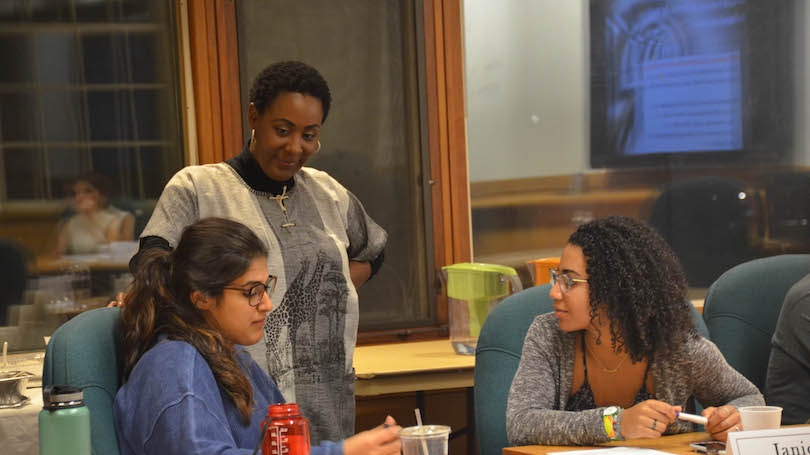
- Public Policy
- Leadership
- Funding
- News & Events
- About the Center
Back to Top Nav
Back to Top Nav
Back to Top Nav
Back to Top Nav
“Do they teach you English in school?”, “Do your parents speak in English too? (Yes.) As well as you do?” or “Why don’t you have more of an accent?” are only some questions I have received as an Indian student at Dartmouth. They helped me understand how language was an integral element that informed one’s cultural identity, and the way one interacts with his/her environment. As I walked into Ms. Anya’s session on Intercultural Communication, I believed myself to be adequately cognizant of what it meant to communicate across cultures, but boy was I wrong.
The session focused on personal and social identities, and the role language played in formulating them. We spent some time analyzing words that changed meaning with changing contexts – who knew the word thug had such a vivid history? – and moved on to discussing how language lent itself to social constructs and beliefs. The Cultural Identifications Inventory exercise drew on this idea, and encouraged some profound insights across the room. One of these insights that has stuck with me was made by Thuyen; talking about her cultural identities of female and Asian, she explained how while these were her most salient identifications, she still perceived them as negative. This triggered a number of neural pathways in my brain but in the interest of brevity, I will focus on two.
First, it was interesting to see how while most of us looked/dressed/talked differently across the room, our core identifiers were shared with a just a few nuances– we all identified by gender, race, ethnicity first and other factors came later. I talked to Janice during the exercise, and the similarity between our identities despite having grown up in completely different cultures (and continents, might I add) was shocking and interesting to me. In my opinion, these “personal” identifiers weren’t personal at all – they were products of social influence. When I wake up every morning, I don’t necessarily take an inventory of whether I am female, or Asian/Indian, I think about how sleep deprived I am (i.e. how I’m feeling in the moment) and what I have to do in the day (i.e. what motivates me). The fact that most of us chose these factors in a social setting highlights the extent of how much context matters in everything we do and how we think.
Second, the idea of social context informing self-identity and leading to negative perceptions has anchored itself in the center of my mind, and since the session I actively think about how I evaluate my own circumstances based on external indicators. During the session, we talked about “multiple selves”, or the idea that we mold our personalities to match our surroundings. Hence, living in a world where everything we do is informed by external factors, it is only normal to incorporate its beliefs and attitudes into our own decision making processes and language plays a large part in this. For example, when I’m deciding about how to think about myself when I identify as a woman, I draw on context clues about inferiority (“you throw like a girl”) and disparity that the world throws at me – same for Asian, same for Indian, same for how I perceive privilege. Initially, I was appalled by how impersonal my personal identifications really were. But as time has passed, I have come to understand the principle of multiple cultural identities and how these perceptions vary when I move from culture to culture (talk about confusing, right?)
In conclusion, the personal nature of the theme of this session triggered momentous insights that has helped shape my cultural and personal perceptions. What I originally perceived as ignorance has revealed itself to be inquisitiveness, and with this new comprehension I look forward to engaging in more conversations around culture where I could potentially contribute more thoughtful insights. The understanding of how language dictates social beliefs, perceptions, and to a large extent, stigma and discrimination, and how these in turn are intricately related to one’s personal identity is an important take-away for me because it helps me be more mindful and conscious of my words and actions.
- Submitted by Akanksha Wasan '18, Rockefeller Global Leadership Program Participant